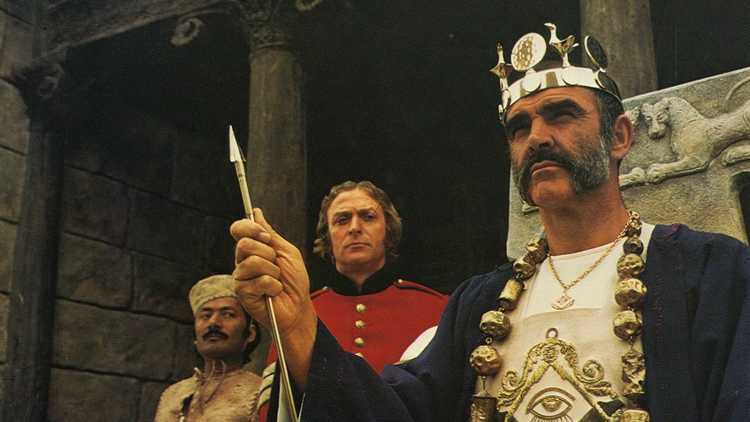


By Steve Sailer
10/31/2009
From my September 26, 2001 essay on John Huston’s movie The Man Who Would Be King, which was based on the Kipling short story.
Yet, if a war in Afghanistan does prove winnable, which it should, ought the U.S. to undertake a long-term benevolent occupation to attempt to turn that desolate land into a peaceful "normal country?" Huston’s movie offers a skeptical perspective. Initially, the two pirates' plan succeeds wildly. The pagans believe Daniel is a god, the son of Alexander. The high priests place the great Greek’s crown upon his head and offer him a treasure room full of rubies and gold. All Daniel and Peachey need to do to become the two richest men on Earth is to fill their packs, wait four months for the snows in the Hindu Kush to melt, and then walk out. While awaiting Spring, Daniel amuses himself by playing at being king. To the applause of his new subjects, he enforces peace, dispenses justice at traditional durbars, sets up granaries to insure against famine, and builds bridges to tie the country together. When the passes finally open, Peachey learns to his horror that Daniel now feels too responsible for his people to grab the loot and run. The grandiose nation-building urge that in the 1990’s helped inspire American interventions in Somalia, Haiti, and Bosnia has infected him. "A nation I shall make of it, with an anthem and a flag," King Daniel thunders. … Catastrophe ensues.